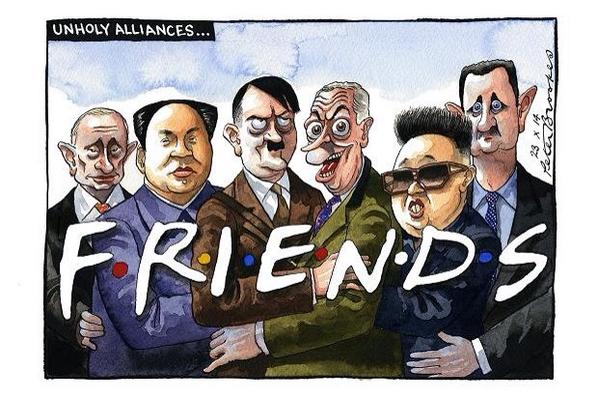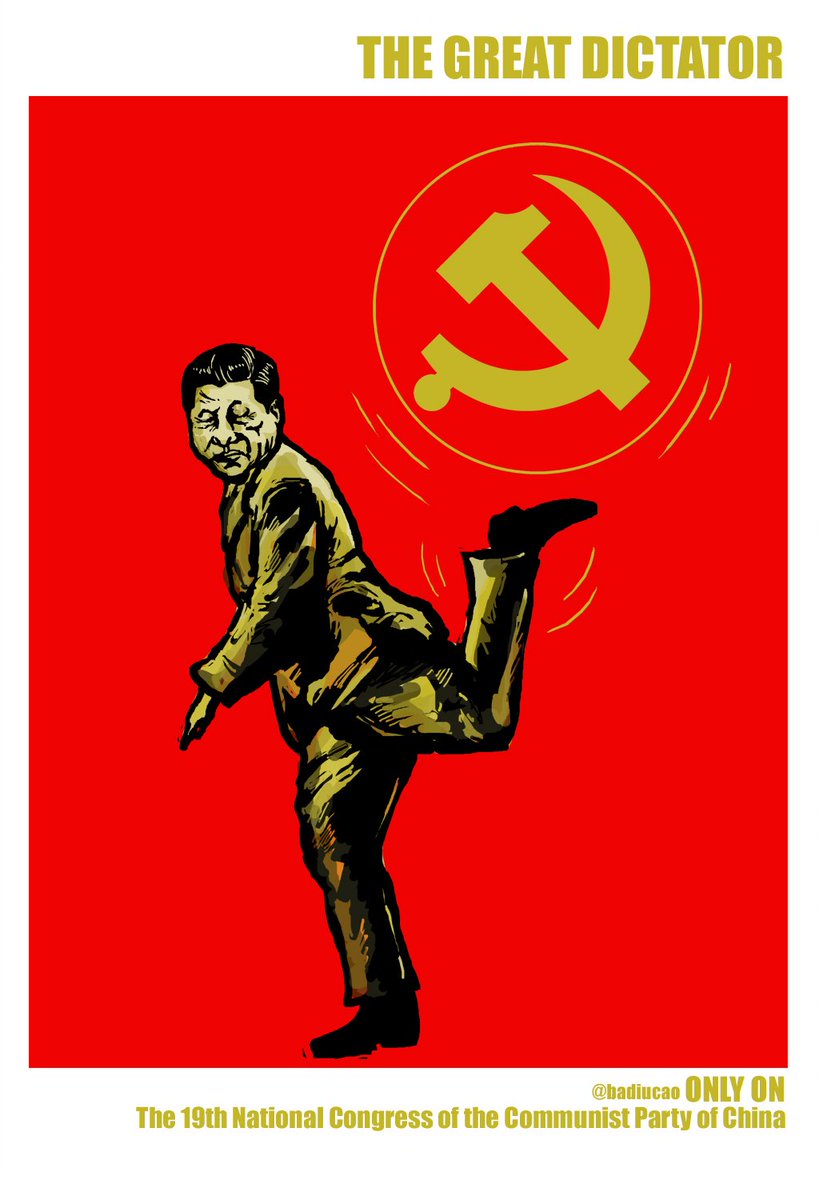By PHILIP STEPHENS
Economic weakness has seen EU governments allow Beijing to play divide and rule

It is a commonplace in Chinese commentary that Europe is in irreversible decline.
Hope, you suspect, is welded to expectation.
Democracies, the story goes, are in trouble as the old economic powers are left behind.
China is stealing a technological march.
As the US turns inward, an enfeebled Europe will have to turn eastward.
China’s grand “one belt, one road” project will connect east to west, new to old.
Guess who will be in charge?
Western liberalism, this prognosis has it, has outlived its time.
Cumbersome, inefficient and divisive, it lacks the unity of purpose harnessed by autocratic regimes.
Nor can it any longer meet the demands of the people — witness the trouncing of the old elite by Donald Trump in the US and the nationalist backlash in much of Europe.
The future belongs to strongman leaders untroubled by the competing demands of pluralist societies — Vladimir Putin in Russia, Recep Tayyip Erdogan in Turkey and, above all, China’s Xi Jinping. Europeans are often too feeble in the face of such jibes.
The autocrats, otherwise intelligent people mutter, have a point.

Xi has attached the might of the state to his great China dream.
The breathless advance of technology is allowing autocrats to tighten their grip on the state.
Look at China’s chilling experiment to capture digitally every detail of its citizens’ lives in a single electronic “rating”, combining everything from credit status to fealty to the party.
Economic weakness at home has seen EU governments scramble for the benefits of doing business with a booming China.
They have allowed Beijing to play divide and rule.
London, Paris and Berlin have had their sights on the rich market for exports; smaller economies on the eastern periphery seek a new source of investment.
Human rights now take a back seat.
Only the other day, 16 leaders from the eastern half of the continent paid homage to Chinese premier Li Keqiang at a summit in Budapest.
All true.
But, as the European Council on Foreign Relations says in an excellent analysis of the balance of power in the EU-China relationship, even the most enthusiastic mercantilists have begun to count the costs of doing business with Beijing.
Win-win too often refers to a double whammy for China.
There is anyway a bigger flaw in these grand predictive sweeps.
The organising assumption is that history travels in straight lines — that Europe’s troubles are inescapable and that China will be forever impervious to the economic cycle and the human desire for freedom.
To the contrary, the EU is on the mend.
Sure, Britain is leaving, but every passing week simply confirms Brexit as a grotesque act of self-harm.
The rest of the continent has rediscovered economic growth.
Unemployment is falling and investment rising.
Greece no longer threatens to collapse the eurozone.
The migration crisis has subsided.
There are strong hopes in Paris and Berlin for a reinvigoration of the Franco-German relationship.
In short, Europe no longer feels like a continent flat on its back.
As for European democracy, the populists have been held at bay.
For all the imperfections, successive crises have also shown the peculiar resilience of democratic systems.
Chucking out the rascals is a safety valve.
Angry though they might be, voters are not clamouring for curbs on individual freedom or yearning for despotic rule.
What is needed now is for Europe to recover confidence in its values and institutions.
The oft-rehearsed argument between those certain that China will soon rule the world and others sure that it will collapse under the collision of rising living standards and political repression is a silly one. What can be sensibly be said is that China has plenty of hurdles yet to jump before it realises Xi’s dream.
Party rule rests on a fragile bargain — economic prosperity in return for the absence of freedom.
One of the striking features of authoritarian regimes is their brittleness.
They are unassailable until the moment they break.
Where Beijing is right is that the relationship between China and Europe will be as important as any in shaping geopolitics during coming decades.
The belligerent isolationism of Trump’s foreign policy is unlikely to survive beyond his presidency, but it is a fair assessment that his successors in the White House will draw tighter lines around America’s international commitments.
So the focus of geopolitical attention will shift from the littoral states of the north Atlantic to what the late Zbigniew Brzezinski once called the “axial supercontinent” of Eurasia.
This is the vast space over which China would like to hold sway during the second half of the 21st century.
The EU has a choice: it can be supplicant, partner or roadblock.
Europe is rich, technologically advanced and educationally sophisticated.
“One belt, one road” is an offer it can refuse.
At the very least it can set its own terms for the relationship.
If China wants connectivity it must open up its own economy; if it wants to be an investment partner, it should observe European standards and norms.
All that is required of EU nations is a modicum of confidence and shared resolve.
Europe has taken a battering.
China’s rise has been amplified by western disarray.
Geopolitics, though, is a long game.
Not so long ago the US called itself the indispensable superpower.
Beijing is not immune from such hubris.
China may be at the gates, but Europe should feel no obligation to bow to Beijing.

RépondreSupprimerIf you want to save your marriage, you must be well aware that you will need an urgent help from expert. The kind of help which will make it possible for you to change your partner’s intentions of divorcing you. Therefore, Dr Obodo is here to help you and stop a divorce from happening.
CONTACT DR OBODO TODAY: EMAIL: TEMPLEOFANSWER@HOTMAIL.CO.UK OR CALL/WHATSAPP: +234 815 542548-1